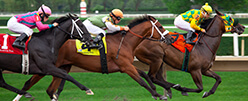Introduction To Eurovision Betting
[ ]Eurovision had humble start, but turned into mega event. Now millions are watching this song contest, and many choose to place a Eurovision bet. Involvement of audience in deciding a winner adds extra thrill thus making Eurovision betting especially attractive. Online bookmakers offer great opportunities for those who are ready to wager money on their forecasted outcomes. Good odds and welcome bonuses is what punters generally get when registering betting accounts.
Outcome Uncertainty
There’s one special characteristic of Eurovision betting – you have no idea who’s going to win. First contest was organized over 50 years ago and for a long time UK was always considered to be favorite. But the contest entered 21st century with significant changes. Since then almost every year countries with no previous victories started to win, there were: Estonia, Turkey, Serbia, Ukraine, Finland and other first time winners.
Norway is the only country that won in 21st century and had two more wins before – first in 1985 and second ten years later. But that’s not the type of statistics to affect Eurovision Song Contest betting odds. By looking at last years’ outcomes, one important conclusion can be made. All the winners are not only great singers, but are also handsome and skillful performers overall. Knowing this can help you make accurate Eurovision bets.
Factors To Consider
This event isn’t solely about singing anymore, but more of a talent contest where the whole crew is participating. Dancers, special effects, music, costumes… Singing isn’t the only thing audience judge. 2008 winner Dima Bilan (Russia) and Alexander Rybak (Belarus) both were nice looking guys and had spectacular acts. There are many more similar examples and every next year proves it. Those facts are important to remember as useful Eurovision betting tips.
Statistics show that public loves when singers perform songs they wrote themselves or took part in writing them. Jorgen Olsen from Denmark, Sertab Erener from Turkey, Ruslana from Ukraine and many other winners of this century were authors or co-authors of songs they performed. Knowing this trend you can significantly narrow down the list of contestants which have higher chances of winning, especially if you take into account that majority of singers aren’t involved in creation of their songs.
Take a look at odd cases such as Lordi winning in 2006, and you’ll understand that people sometimes prefer ugly and unconventional rather than beautiful and inspiring. By the way, this Finland band was performing the song written by one of their members. History can tell a lot about preferences and choices people make. Listen to it when making your next Eurovision bet.
When the contest is close to an end, even the order in which singers appear on stage matters. According to statistics of last contests, first performers have lower chances to win the competition. That’s because voting opens when all acts are over. First performances should be extremely memorable, otherwise impressions will fade out.






